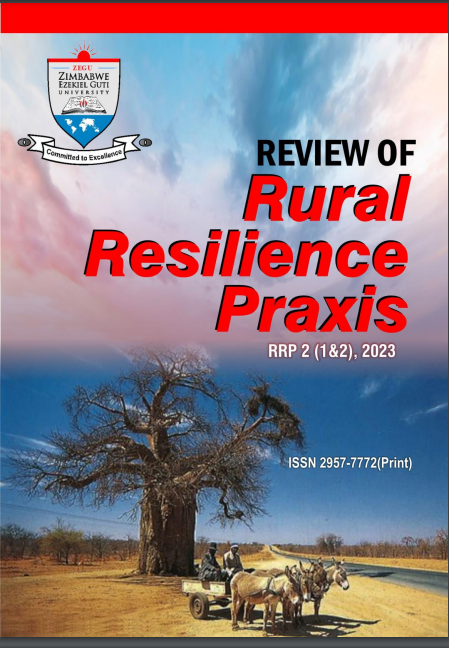Finance The footing for Rural Resilience in Africa
DOI:
https://doi.org/10.71458/adw5g545Keywords:
policy maker, economic growth, assets, household income, RiskAbstract
This article critically discusses rural finance as the basis for engendering rural resilience in Africa. This position emanates from the fact that African countries are amongst the most susceptible to the adverse effects of natural hazards, whilst also showing an increasing obligation to address disaster risk through diversification by encouraging rural financing initiatives. Rural financing as a mitigation strategy to the adverse effects of climate change is urgently needed if the continent is to protect the development gains demonstrated by an economic growth rate. In recent times, the scale and occurrence of disasters and crises have been on sharp rise. More than 60 percent of the African population relies on agriculture for food and income, and they are extremely affected by these crises. Methods engaged are secondary data analysis of existing literature related to the topic. Results from the research, inter alia, include the finding that globally, 1.7 billion adults still lack access to formal financial facilities, with a large fraction living in South Asia and Sub-Saharan Africa, respectively. The following recommendations flow from the research: there is need to redefine out-dated financial literacy, with important implications for nations considering financial development approach to refining households’ long-run financial resilience. It is also important to warrant that these communities can be resilient to such shocks by providing cross-sectorial and innovative solutions. The solutions put forward must no longer be reactive but confront the root causes of instability.




